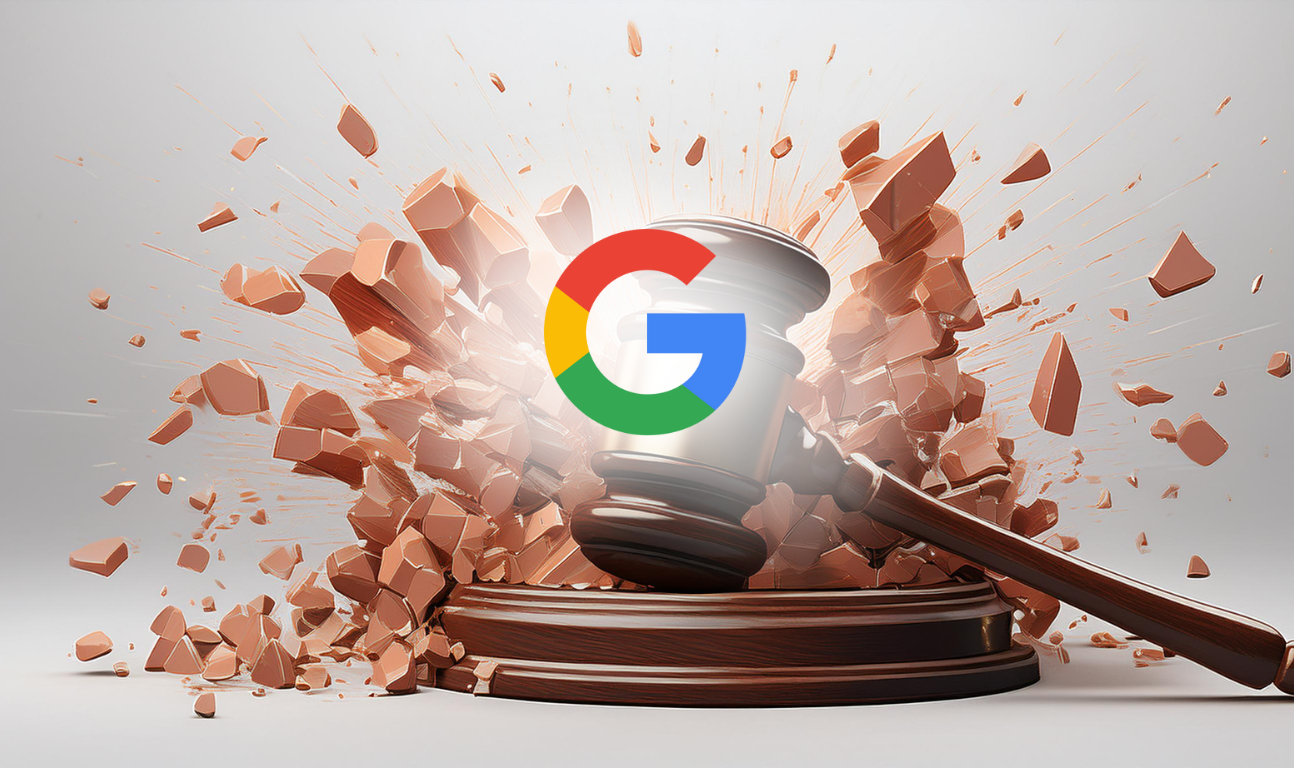In the rapidly evolving world of artificial intelligence, a legal battle is brewing that could reshape the entire landscape of AI development and copyright law. Meta, the tech giant formerly known as Facebook, finds itself at the center of a high-stakes lawsuit that has the potential to set precedents for how AI companies train their models and use copyrighted material. As someone who's been closely following the tech industry for years, I can't overstate the significance of this case for Meta and the broader AI sector.
The lawsuit, filed by authors Sarah Silverman, Christopher Golden, and Richard Kadrey, alleges that Meta unlawfully used their copyrighted works to train its AI language model, LLaMA. This legal challenge isn't just about a few books – it strikes at the heart of how AI companies develop their technologies and could have far-reaching consequences for the entire industry.
Let's dive deep into this complex issue, examining its implications for Meta's strategy, the broader AI landscape, and what it could mean for the future of technology development.
The Lawsuit: Background and Key Players
The origins of this lawsuit can be traced back to the fundamental question of how AI models are trained. Large language models like Meta's LLaMA require vast amounts of text data to learn from, and much of this data is scraped from the internet – including copyrighted works. The plaintiffs argue that this practice amounts to copyright infringement, as their works were used without permission or compensation.
The involvement of high-profile authors and the addition of prominent lawyer David Boies to the plaintiffs' legal team has elevated the case's profile. As reported by Reuters, Boies is known for his work on landmark cases, and his participation signals the seriousness of this legal challenge.
Meta's initial response has been to invoke the principle of "fair use," arguing that the use of copyrighted materials for AI training is transformative and falls within legal bounds. In a court filing, Meta stated:
"LLaMA does not create copyright-infringing material, and Plaintiffs have not alleged that it does. Instead, LLaMA itself constitutes original expression entitled to copyright protection."
This defense mirrors arguments made in previous cases, such as Authors Guild v. Google, where Google's book scanning for search purposes was deemed fair use. However, the unique aspects of AI training may challenge the applicability of these precedents.

Meta's AI Strategy and the Role of LLaMA
To understand the stakes of this lawsuit, we need to examine Meta's AI strategy and the importance of LLaMA within it. Meta has been aggressively investing in AI, seeing it as a key driver of future growth and innovation. LLaMA, or Large Language Model Meta AI, is a cornerstone of this strategy.
Mark Zuckerberg, Meta's CEO, has been vocal about the company's AI ambitions. In a recent earnings call, he stated:
"AI is the key to unlocking many of our future innovations. We're already integrating AI across our products, and we're seeing some really exciting results."
LLaMA represents a significant technological advancement for Meta. It's an open-source language model that competes with other industry-leading models like GPT-3. By making LLaMA open-source, Meta aimed to accelerate AI research and development across the industry. However, this openness also exposes the model to increased scrutiny and legal challenges.
The lawsuit threatens to disrupt Meta's AI roadmap. If the court rules against Meta, it could force the company to retrain its models using only licensed or public domain works, potentially setting back its progress and increasing costs significantly.

Legal and Ethical Implications
The core legal question in this case is whether the use of copyrighted materials to train AI models constitutes fair use. This is uncharted territory in copyright law, and the court's decision could have far-reaching implications.
If the court rules in favor of the plaintiffs, it could fundamentally change how AI companies operate. They might need to obtain licenses for all copyrighted material used in training, a logistical nightmare given the vast amounts of data involved. Alternatively, they might need to develop new training methodologies that don't rely on copyrighted works.
On the other hand, a ruling in Meta's favor could set a precedent that training AI on copyrighted works is indeed fair use. This would be a significant win for AI companies but could raise concerns about the rights of content creators in the AI age.
The ethical implications are equally complex. While AI development promises significant societal benefits, we must also consider the rights of creators and the potential for AI to disrupt creative industries. Striking the right balance between innovation and protection of intellectual property will be crucial.
Financial Impact and Market Positioning
The financial stakes of this lawsuit are substantial for Meta. While the company doesn't break out its AI-specific investments, we know that its Reality Labs division, which includes AI research, reported a loss of $13.7 billion in 2022. Any disruption to its AI strategy could extend these losses and delay the expected returns on these investments.
Moreover, the lawsuit introduces uncertainty that could impact investor sentiment. Meta's stock has been volatile in recent years, and additional legal and regulatory challenges could further unsettle investors.
However, it's not all doom and gloom. If Meta successfully defends its position, it could strengthen its market position in AI. The company's open-source approach with LLaMA has already garnered goodwill in the developer community, and a legal victory could cement its leadership in responsible AI development.
Industry Trends and Competitive Landscape
Meta isn't alone in facing these challenges. Similar lawsuits have been filed against other tech giants like Google and Microsoft. The entire AI industry is watching this case closely, as its outcome could shape future development practices.
Competitors are taking various approaches to mitigate risk. Some, like OpenAI, have pursued licensing agreements with content providers. Others are exploring synthetic data generation to reduce reliance on scraped data. These strategies come with their own costs and limitations, but they demonstrate the industry's recognition of the legal risks associated with current training methods.
The resolution of these legal challenges could reshuffle the competitive dynamics in the AI industry. Companies that can adapt quickly to new legal realities – whether through innovative training methods, robust licensing frameworks, or other means – may gain a significant advantage.
Meta's Defense Strategy and Management Response
Meta's legal defense hinges on the fair use doctrine, arguing that its use of copyrighted materials is transformative and doesn't harm the market for the original works. The company's lawyers have drawn parallels to previous cases involving technological innovations, such as search engines and digital libraries.
In a recent statement, Meta's Chief AI Scientist, Yann LeCun, emphasized the importance of open access to information for AI development:
"The progress we've seen in AI has been built on the foundation of open access to information. Restricting this access could significantly slow down AI research and development, ultimately harming society's ability to benefit from these technologies."
While this argument aligns with the broader tech industry's stance, it remains to be seen how it will hold up under legal scrutiny. The unique aspects of AI training – particularly the scale and comprehensiveness of data used – may challenge traditional interpretations of fair use.
Meta's management has also been proactive in addressing ethical concerns around AI development. They've established an AI ethics board and published guidelines for responsible AI development. These efforts could bolster their legal defense by demonstrating a commitment to ethical practices.
However, critics argue that these measures don't go far enough in addressing the fundamental issues of consent and compensation for content creators. The effectiveness of Meta's defense strategy will likely hinge on how well they can reconcile their business interests with these ethical considerations.
Opportunities and Challenges
Despite the legal hurdles, this lawsuit also presents opportunities for Meta. A favorable outcome could validate their open-source approach and position them as leaders in ethical AI development. It could also provide clarity on the legal boundaries of AI training, potentially giving Meta a first-mover advantage in adapting to the new legal landscape.
Moreover, the lawsuit has brought increased attention to Meta's AI initiatives. If handled well, this could actually boost the company's profile in the AI space and attract top talent to their projects.
However, the challenges are significant. Even if Meta prevails in this case, it's likely to face ongoing scrutiny and potential regulation. The company will need to navigate a complex legal and ethical landscape while continuing to innovate and compete in the fast-moving AI sector.
The financial risks are also substantial. Legal fees, potential damages, and the cost of adapting AI training methods could all impact Meta's bottom line. The company will need to carefully balance these short-term costs against the long-term potential of its AI investments.
The Future of AI Development and Copyright
Regardless of the outcome of this specific case, it's clear that the relationship between AI and copyright law will need to evolve. We're likely to see new frameworks emerge for managing intellectual property in the context of AI development.
One potential model is a collective licensing system, similar to what exists in the music industry. This could provide a streamlined way for AI companies to access copyrighted works while ensuring fair compensation for creators.
Another possibility is the development of AI-specific copyright exceptions. Policymakers might create new categories of fair use that account for the unique aspects of AI training while still protecting the rights of content creators.
We're also likely to see technological solutions emerge. Advanced data provenance tracking could allow AI companies to more easily identify and potentially compensate the sources of their training data. Synthetic data generation techniques could reduce reliance on copyrighted works altogether.
Conclusion
As we've explored, Meta's AI copyright lawsuit is more than just a legal battle – it's a pivotal moment that could shape the future of AI development and copyright law. The outcome will have significant implications not just for Meta, but for the entire tech industry and beyond.
For Meta, the stakes are high. The company has bet big on AI as a key driver of future growth, and this lawsuit threatens to disrupt those plans. However, it also presents an opportunity for Meta to demonstrate leadership in ethical AI development and to help shape the legal and regulatory framework for the AI age.
Looking at the broader picture, this case highlights the growing tensions between rapid technological advancement and existing legal frameworks. As AI continues to evolve, we'll likely see more such conflicts arise, necessitating a reimagining of how we approach intellectual property in the digital age.
As someone who's been following the tech industry for years, I believe we're at a critical juncture. The resolution of this lawsuit and others like it will set the course for AI development for years to come. It's a complex issue with no easy answers, but one thing is clear: the intersection of AI and copyright law will be a key battleground in shaping our technological future.
In the meantime, Meta and other AI companies will need to navigate these uncertain waters carefully. They'll need to balance their drive for innovation with respect for intellectual property rights, all while preparing for a potentially very different legal landscape in the near future. It's a challenging task, but one that could ultimately lead to more robust, ethical, and sustainable AI development practices.
As this situation continues to unfold, I'll be watching closely, ready to analyze each new development and its potential impact on the tech landscape. The outcome of this lawsuit could be a defining moment for Meta, for the AI industry, and for the future of innovation itself.






